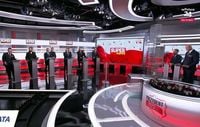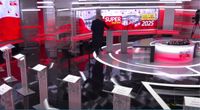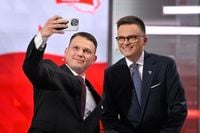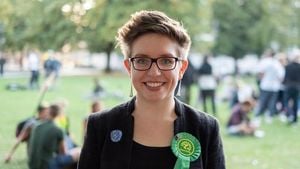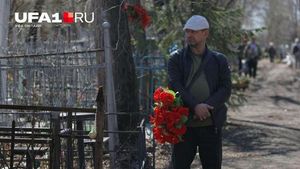In a groundbreaking event for the 2025 presidential election campaign, all thirteen candidates participated in a debate organized by Super Express on April 28, 2025, at 6 PM. This unprecedented gathering marked the first time every candidate faced off in the same forum, allowing voters a comprehensive view of their options as the election date approaches.
The candidates included a diverse array of political figures: Artur Bartoszewicz (economist), Magdalena Biejat (Left), Grzegorz Braun (Confederation of the Polish Crown), Szymon Hołownia (Third Way), Marek Jakubiak (Free Republicans), Maciej Maciak (Movement for Prosperity and Peace), Sławomir Mentzen (Confederation), Karol Nawrocki (supported by Law and Justice), Joanna Senyszyn (former SLD MP), Krzysztof Stanowski (journalist), Rafał Trzaskowski (Civic Coalition), Marek Woch (Non-Partisan Local Government Activists), and Adrian Zandberg (Together).
Unlike previous debates, the format of this event was notably different. It was structured into two rounds, with the first round allowing candidates to engage in a "verbal duel" with three selected rivals. Each candidate had 30 seconds to pose a question and 90 seconds to respond, followed by an additional 30 seconds for rebuttal. The candidates challenged each other in the following pairs: Adrian Zandberg faced Grzegorz Braun, Szymon Hołownia took on Marek Jakubiak, Sławomir Mentzen confronted Marek Woch, and so forth, culminating in a series of direct exchanges that highlighted their differing political views.
In the second round, each candidate was allotted 90 seconds for individual statements, where they could outline their vision for the presidency and address the electorate directly. This format not only encouraged interaction among candidates but also provided them a platform to articulate their policies and aspirations clearly.
The debate was moderated by Jan Złotorowicz and Jacek Prusinowski, who guided the discussions and ensured that the candidates adhered to the time limits set for each segment. The moderators played a crucial role in maintaining the flow of the debate, allowing for an engaging and informative experience for both the candidates and the audience.
As the debate unfolded, moments of levity emerged, such as when Sławomir Mentzen took a selfie with Szymon Hołownia before the latter could ask him a question. This light-hearted interaction provided a glimpse into the personalities of the candidates beyond their political personas.
Each candidate's approach to the debate varied significantly, reflecting their unique political strategies and target demographics. For instance, Hołownia's focus on appealing to younger voters was evident in his proposals, while Trzaskowski emphasized his experience and established presence in the political landscape.
Furthermore, the debate showcased the candidates' responses to pressing national issues, ranging from economic policies to social justice, allowing viewers to gauge their priorities and commitments. As they navigated complex topics, the candidates demonstrated their preparedness and ability to engage with critical issues facing Poland today.
While the debate was primarily a platform for candidates to showcase their policies, it also served as a significant moment for voters, who were eager to see how their potential leaders would handle direct confrontations and articulate their visions. The event was streamed live, enabling a broader audience to engage with the discussions and form opinions ahead of the election.
With the election date approaching, this debate is expected to have a substantial impact on voter sentiment and candidate positioning. The visibility and engagement that come from such a forum could prove crucial in swaying undecided voters, particularly as candidates continue to refine their messages and strategies in the lead-up to the polls.
As the candidates prepare for the next stages of their campaigns, the insights gained from this debate will likely influence their approaches moving forward. The ability to effectively communicate their visions and respond to opponents will be vital in the weeks to come.
In summary, the Super Express debate not only provided a platform for all thirteen candidates to present their views but also fostered an environment of direct engagement that is essential in a democratic process. Voters are now better equipped to make informed decisions as they head to the polls, reflecting the importance of such debates in shaping the political landscape.
